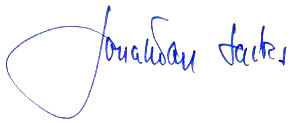Jonathan Sacks – The Necessity of Asking Questions
It is no accident that parshat Bo, the section that deals with the culminating plagues and the exodus, should turn three times to the subject of children and the duty of parents to educate them. As Jews we believe that to defend a country you need an army, but to defend a civilisation you need education. Freedom is lost when it is taken for granted. Unless parents hand on their memories and ideals to the next generation – the story of how they won their freedom and the battles they had to fight along the way – the long journey falters and we lose our way.
What is fascinating, though, is the way the Torah emphasises the fact that children must ask questions. Two of the three passages in our parsha speak of this:
And when your children ask you, ‘What does this ceremony mean to you?’ then tell them, ‘It is the Passover sacrifice to the Lord, who passed over the houses of the Israelites in Egypt and spared our homes when He struck down the Egyptians.’ (Ex. 12:26-27)
In days to come, when your son asks you, ‘What does this mean?’ say to him, ‘With a mighty hand the Lord brought us out of Egypt, out of the land of slavery. (Ex. 13:14)
There is another passage later in the Torah that also speaks of question asked by a child:
In the future, when your son asks you, “What is the meaning of the stipulations, decrees and laws the Lord our God has commanded you?” tell him: “We were slaves of Pharaoh in Egypt, but the Lord brought us out of Egypt with a mighty hand. (Deut. 6:20-21)
The other passage in today’s parsha, the only one that does not mention a question, is:
On that day tell your son, ‘I do this because of what the Lord did for me when I came out of Egypt.’ (Ex. 13:8)
These four passages have become famous because of their appearance in the Haggadah on Pesach. They are the four children: one wise, one wicked or rebellious, one simple and “one who does not know how to ask.” Reading them together the sages came to the conclusion that [1] children should ask questions, [2] the Pesach narrative must be constructed in response to, and begin with, questions asked by a child, [3] it is the duty of a parent to encourage his or her children to ask questions, and the child who does not yet know how to ask should be taught to ask.
There is nothing natural about this at all. To the contrary, it goes dramatically against the grain of history. Most traditional cultures see it as the task of a parent or teacher to instruct, guide or command. The task of the child is to obey. “Children should be seen, not heard,” goes the old English proverb. “Children, be obedient to your parents in all things, for this is well-pleasing to the Lord,” says a famous Christian text. Socrates, who spent his life teaching people to ask questions, was condemned by the citizens of Athens for corrupting the young. In Judaism the opposite is the case. It is a religious duty to teach our children to ask questions. That is how they grow.
Judaism is the rarest of phenomena: a faith based on asking questions, sometimes deep and difficult ones that seem to shake the very foundations of faith itself. “Shall the Judge of all the earth not do justice?” asked Abraham. “Why, Lord, why have you brought trouble on this people?” asked Moses. “Why does the way of the wicked prosper? Why do all the faithless live at ease?” asked Jeremiah. The book of Job is largely constructed out of questions, and God’s answer consists of four chapters of yet deeper questions: “Where were you when I laid the earth’s foundation? … Can you catch Leviathan with a hook? … Will it make an agreement with you and let you take it as your slave for life?”
In yeshiva the highest accolade is to ask a good question: Du fregst a gutte kashe. Rabbi Abraham Twersky, a deeply religious psychiatrist, tells of how when he was young, his teacher would relish challenges to his arguments. In his broken English, he would say, “You right! You 100 prozent right! Now I show you where you wrong.”
Isadore Rabi, winner of a Nobel Prize in physics, was once asked why he became a scientist. He replied, “My mother made me a scientist without ever knowing it. Every other child would come back from school and be asked, ‘What did you learn today?’ But my mother used to ask: ‘Izzy, did you ask a good question today?’ That made the difference. Asking good questions made me a scientist.”
Judaism is not a religion of blind obedience. Indeed, astonishingly in a religion of 613 commandments, there is no Hebrew word that means “to obey”. When Hebrew was revived as a living language in the nineteenth century, and there was need for a verb meaning “to obey,” it had to be borrowed from the Aramaic: le-tsayet. Instead of a word meaning “to obey,” the Torah uses the verb shema, untranslatable into English because it means [1] to listen, [2] to hear, [3] to understand, [4] to internalise, and [5] to respond. Written into the very structure of Hebraic consciousness is the idea that our highest duty is to seek to understand the will of God, not just to obey blindly. Tennyson’s verse, “Theirs not to reason why, theirs but to do or die,” is as far from a Jewish mindset as it is possible to be.
Why? Because we believe that intelligence is God’s greatest gift to humanity. Rashi understands the phrase that God made man “in His image, after His likeness,” to mean that God gave us the ability “to understand and discern.” The very first of our requests in the weekday Amidah is for “knowledge, understanding and discernment.” One of the most breathtakingly bold of the rabbis’ institutions was to coin a blessing to be said on seeing a great non-Jewish scholar. Not only did they see wisdom in cultures other than their own, they thanked God for it. How far this is from the narrow-mindedness than has so often demeaned and diminished religions, past and present.
The historian Paul Johnson once wrote that rabbinic Judaism was “an ancient and highly efficient social machine for the production of intellectuals.” Much of that had, and still has, to do with the absolute priority Jews have always placed on education, schools, the beit midrash, religious study as an act even higher than prayer, learning as a life-long engagement, and teaching as the highest vocation of the religious life.
But much too has to do with how one studies and how we teach our children. The Torah indicates this at the most powerful and poignant juncture in Jewish history – just as the Israelites are about to leave Egypt and begin their life as a free people under the sovereignty of God. Hand on the memory of this moment to your children, says Moses. But do not do so in an authoritarian way. Encourage your children to ask, question, probe, investigate, analyse, explore. Liberty means freedom of the mind, not just of the body. Those who are confident of their faith need fear no question. It is only those who lack confidence, who have secret and suppressed doubts, who are afraid.
The one essential, though, is to know and to teach this to our children, that not every question has an answer we can immediately understand. There are ideas we will only fully comprehend through age and experience, others that take great intellectual preparation, yet others that may be beyond our collective comprehension at this stage of the human quest. Darwin never knew what a gene was. Even the great Newton, founder of modern science, understood how little he understood, and put it beautifully: “I do not know what I may appear to the world, but to myself I seem to have been only a boy playing on the seashore, and diverting myself in now and then finding a smoother pebble or prettier shell than ordinary, whilst the great ocean of truth lay all undiscovered before me.”
In teaching its children to ask and keep asking, Judaism honoured what Maimonides called the “active intellect” and saw it as the gift of God. No faith has honoured human intelligence more.










